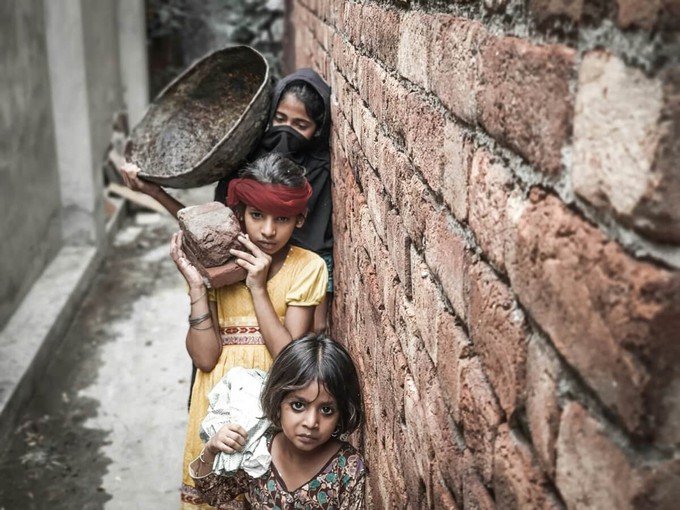- Clothes
- Bags
- Accessories
-
Inspiration
- Shoes
Why the Fashion Revolution Still Matters Years After Rana Plaza

Online workshops, in-person events during the Fashion Revolution Week, posts tagged with #WhoMadeMyClothes: yes, unfortunately, fashion is still revolting.
And we say ‘unfortunately’ not because we don’t believe in this powerful movement, but because it’s heartbreaking to see that it’s still so desperately needed.
What is the Fashion Revolution movement?

Fashion Revolution is a global movement campaigning for a fair, safe, eco-friendly, and transparent approach to this industry.
Basically, it calls for a systemic and structural change as we’re all tired of vague promises and greenwashing!
This movement was founded in the wake of the Rana Plaza disaster in 2013, when over 1,000 garment workers died and 2,500 were injured due to a lack of health and safety measures in what was essentially a fast fashion sweatshop.
What has the Fashion Revolution done?
The Fashion Revolution has shone a light on the horrors behind fast fashion and started to make some positive changes:
- By liaising with over a hundred policymakers in 18 countries
- Through +500 partnerships
- Using social media to motivate consumers to demand transparency from brands
Still, it’s hard to shine a light on such a huge problem when so many people and companies prefer to turn a blind eye.
Why the Fashion Revolution is still needed years after the Rana Plaza tragedy
Sure, we’ve definitely seen some positive changes.
For example, more consumers are voting with their money and opting for ethical products: there’s even been a 37% yearly increase in searches for sustainability-related keywords.
And yes, more brands are now publishing their supplier lists compared to only two or three years ago.
Still, the situation is far from ideal.
While fashion becomes faster, its progress towards a more ethical model is way too slow.

- Many major brands are still relying on sweatshops, especially based in developing areas (Bangladesh alone, the very country where the Rana Plaza disaster took place, counts 4,500) but even within Europe, like the Leicester sweatshop scandal in the UK
- Child labour is still involved within fast fashion, cotton production in particular
- Only 47% of fashion brands disclose their manufacturing facilities (that’s less than half!) and less than 30% of big brands do the same when it comes to their approach to living wages for workers
- Instead of slowing down, fashion is getting even faster: as well as facing claims of unethical work practices, ultra fast fashion giants like Boohoo and SHEIN have been tempting consumers by adding thousands of new items every week. Their social media strategies have also shifted the focus from the already dangerous ‘buying for entertainment’ to ‘buying for content’
- 4.3 million tonnes of textile waste are dumped in landfills every year in the EU, but less than 3 in 10 consumers have reduced their fashion purchases for ethical reasons
Let’s support the Fashion Revolution movement!
 Photo credit: AfroCraze/Kaftan Mag
Photo credit: AfroCraze/Kaftan Mag
As well as discovering the Fashion Revolution Week events taking place around the anniversary of the Rana Plaza collapse, here’s how you can support this ethical movement:
- Make the most of their free guides
- Hold brands accountable: ask them #WhoMadeMyClothes, and demand transparency
- Educate yourself on the problems with fast fashion
- Swap its unsustainable mindset for a more eco-friendly approach to clothing
- Support ethical fashion brands that have proven to care about both their workers and the environment. You can find hundreds of them on Project Cece, and we can send you tips to make this journey both easier and… fun!
While the small positive changes shouldn’t go unnoticed, the Fashion Revolution movement is just as needed now as it was a decade ago. Keep revolting with us!
Share our story
Related articles
The Devil Wears… Ultra Fast Fashion. Do You?
Sweatshops, environmental damage, and a negative effect on young consumers’ mental health: meet ultra fast fashion and its sinful consequences.
Fashion Revolution Week: How You Can Be Part of the Change
Enough with an unethical and unsustainable clothing industry! Fashion Revolution Week is your chance to have a say and push brands to take action. Here's how.
How to Ditch Fast Fashion & Switch to Ethical Clothes: 10 Tips
Ready to take the first step towards a more sustainable wardrobe? Here are some practical tips to ditch fast fashion and discover ethical alternatives.
Project Cece is a platform that collects ethical fashion from vetted brands and shops in one place. Browse ethical fashion for women and men and find items that fit your style, budget and values!


